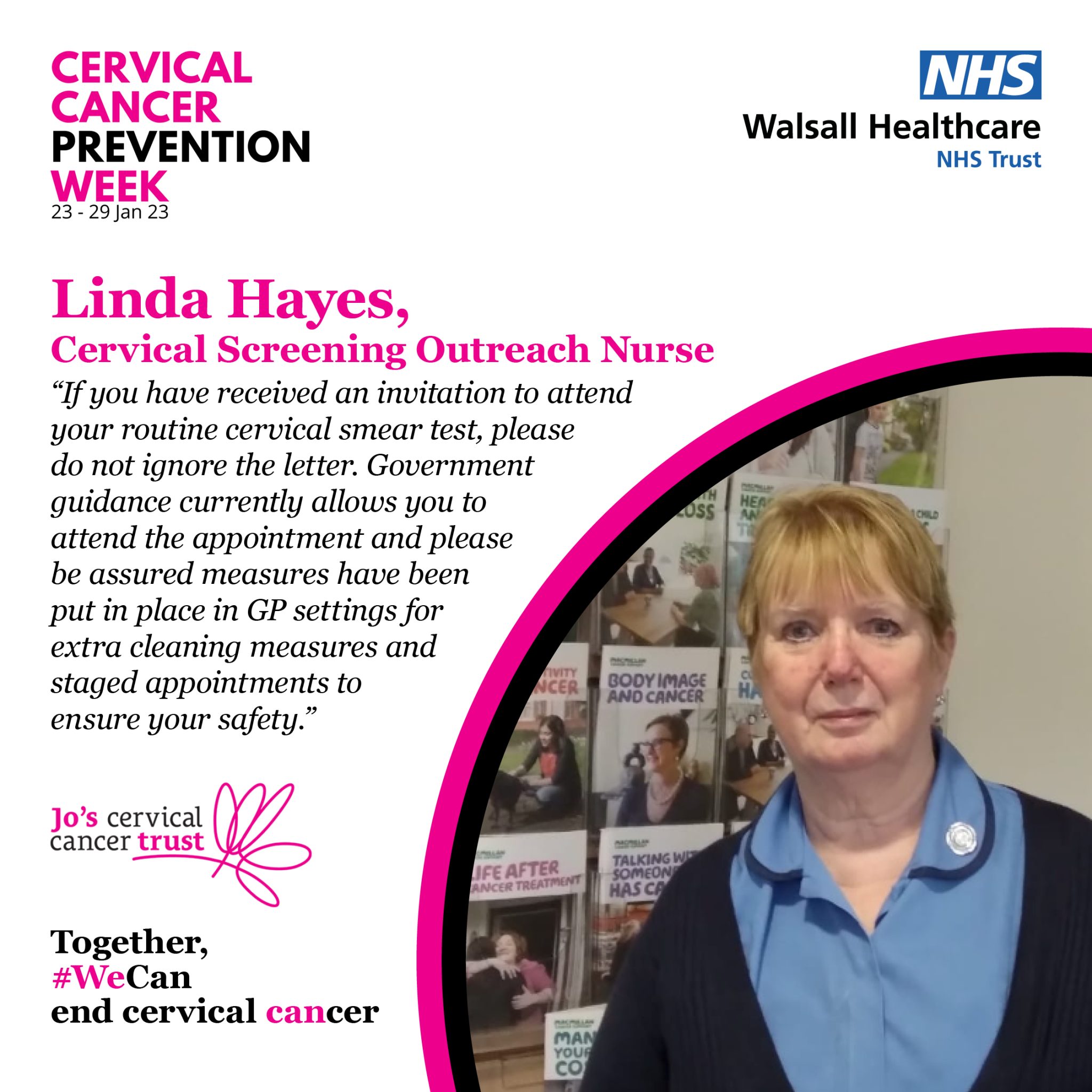Walsall women are being urged to attend potentially life-saving smear tests.
The NHS is calling on those who have not had their tests to book their cervical screening appointments, as around 27 per cent of women are not up to date.
Linda Hayes, Cervical Screening Outreach Nurse at Walsall Healthcare, said: “If you have received an invitation to attend your routine cervical smear test, please do not ignore the letter.
“Government guidance currently allows you to attend the appointment and please be assured measures have been put in place in GP settings for extra cleaning measures and staged appointments to ensure your safety.”
Dr Kiren Collison, GP and Interim Medical Director for Primary Care at NHS England, said: “If you have received an invitation for cervical screening, or missed your last screening, please don’t wait to make an appointment.
“I know life is busy, but screening really does save lives – please put your health at the top of your to-do list and book that appointment with your GP practice or sexual health clinic today. It might just save your life.
“Through cervical screening and treating cell changes, as well as the HPV vaccination, we hope to prevent cervical cancer from ever developing and ultimately eradicate it altogether in the future.”
The call comes after cervical cancer charity, Jo’s Trust, launched its annual Cervical Cancer Prevention Week (23-29 January 2023) to raise awareness of cervical cancer and to drive uptake in the NHS Cervical Screening Programme.
Around 2,700 people are diagnosed with cervical cancer in England each year and approximately 690 die from the disease – around two deaths every day. The NHS Cervical Screening Programme helps save thousands of lives per year and those who are invited are being encouraged to ensure they attend their screening.
In the last year, 2021-22, the NHS sent out more screening invitations than ever before – more than five million – and 3.5 million people came forward for testing.
Screening helps prevent cervical cancer by using a highly effective test to check for high-risk Human Papillomavirus (HPV), which is found in over 99 per cent of all cervical cancers and which may cause abnormal cells to develop in the cervix. These cells can, over time, turn into cancer if left untreated.
Having HPV does not mean someone has or will develop cervical cancer. It is a common virus most people have at some point in their life without knowing it, and it usually goes away on its own. If cell changes are identified, early cervical cancer can be prevented from developing.
The NHS also offers the HPV vaccination to all children aged 12 and 13 at school in Year 8, up until school leaving age, with numerous catch-up opportunities provided by the School Aged Vaccination Teams. GP practices also offer vaccination for those who may have missed it in school, from age 14 until 25.
Vaccination protects against the most common types of HPV, but it is still important to attend a cervical screening appointment when invited because the vaccine does not protect against all strains.
Cervical screening is available by appointment at local GP practices and at some local sexual health services.

